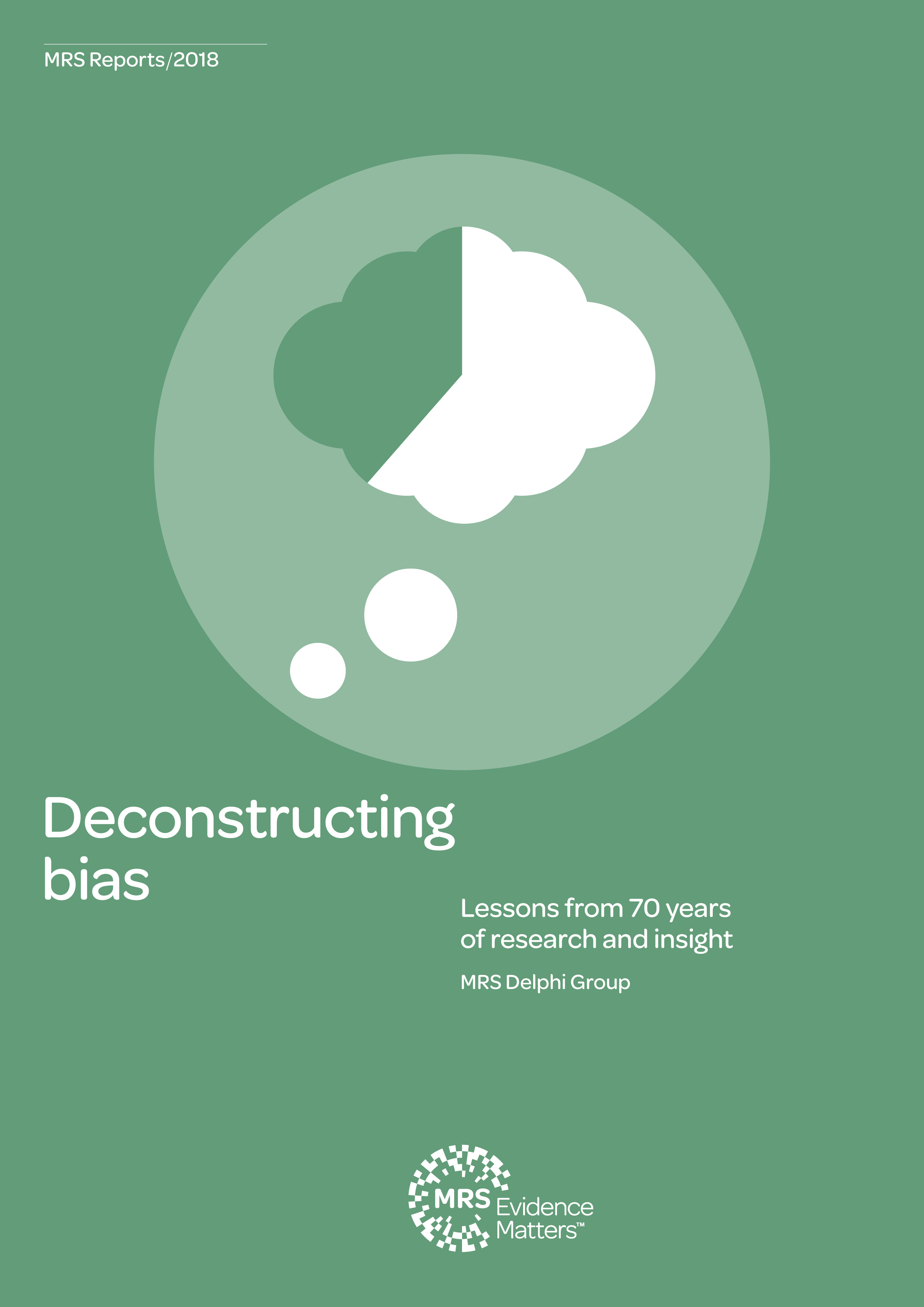MRS Delphi Group reports
MRS Delphi Group publishes reports on the most burning issues for the research sector - privacy, insight effectiveness, data integration, prediction, polling and more.


Researchers know a huge amount about unconscious bias – how it affects people’s behaviour and the responses they give, and how to recognise the warning signs when bias starts creeping into research design and analysis.
Bias is insidious and impossible to strip out or completely neutralise. It can be a force for good or discriminatory. It can be unconscious, or bias can be consciously applied to redress an unfair imbalance.
The purpose of this new report entitled 'Deconstructing bias' which is published today by the MRS Delphi Group is to share the knowledge that resides within research and insight professionals with the other parts of the business. One of the founding principles of the Group is to make more of the collective knowledge of the research sector.
Behind every insight presented and every project delivered is a treasure trove of information and learning which is, more often than not, discarded. Just as businesses have become acutely aware of the value of their data, similarly this sector can use to its advantage the combined intelligence of 70 years of research practice and experience.
Recognising where bias occurs and having some tools to redress the balance is critical for decision making. This is particularly true in those parts of the business where the impact of bias is critical to the overall health of the business – from HR to data analytics; from customer services all the way up to the senior leadership team.
I have long been concerned that algorithms may be directing our lives to a degree that doesn’t allow for serendipitous discovery – whether its new music on Spotify or diverse viewpoints on Facebook. To rectify this we may need a positive bias to aid us in discovery – to put new ideas, products and perspectives in our purview.
As experts in their field, researchers, data analysts and insight professionals are paid for their viewpoint. An interpretation of research findings will be nuanced and informed by personal experience as well as by hard fact.
You could say we pay experts for their bias.
Increasingly, more parts of the business are accessing customer data and analytics. Some of us may lack the skills to interpret this evidence appropriately, given its increasing complexity.
I think we all need some practical tips to help us adopt a critical role and challenge our analysis; to ensure we are applying controlled and consistent measures, for example sample sizes and survey design.
As a senior decision-maker I hope you find this report as useful as I have.
Jane
MRS Delphi Group publishes reports on the most burning issues for the research sector - privacy, insight effectiveness, data integration, prediction, polling and more.


Our newsletters cover the latest MRS events, policy updates and research news.
0 comments